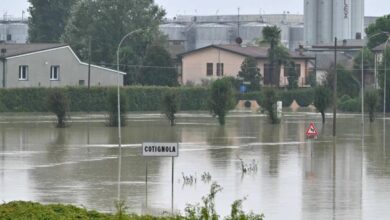Islamic Perspectives on Climate Change and Environmental Stewardship

A large number of Muslim countries are already on the firing line to receive the worst effects of climate change. However, they still lack the cultural sensitivity and preventive actions against it. Regarding this, an Islamic environmentalism movement based on Islamic tradition that is different from Western environmentalism can play a vital role—the period after COVID-19 provided a great chance to strengthen this movement about reducing emissions.
This movement is called for urgently. For instance, water scarcity in Turkey is due to climate change, which manifests itself in rising temperatures and diminishing rainfall. A similar prevalence is observed in Bangladesh, whereby in 2050, one out of seven people will be prone to act as climate refugees, resulting in millions of climate refugees. In the next several decades, the Middle East might become a desert and uninhabitable due to unbearable heat.
However, most of the world’s Muslim nations are regarded as vulnerable nations affected by climate change, and many of them bear or contribute to climate change. As the world’s largest Muslim-majority populated country, Indonesia remains the fifth-biggest carbon emitter and exhibits insignificant measures to account for emission reduction. Bangladesh and Pakistan, two of the most polluted nations, Bangladesh and Pakistan, have not started taking severe actions to mitigate pollution. This inaction is rather strange, given that in 2015, the Muslim world affirmed a coordinated effort to fight climate change.
Climática Presumably, the population most vulnerable to climate change effects would be the one with heightened activism against the phenomenon. Despite the awareness, several Islamic countries are reluctant to integrate Western environmental ideals or give in to pressure from countries that have become industrialised without considering pollution or emission diminution. Environmental colonialism is not a solution either.
The better strategy is to use the aspects of Islamic teachings to encourage Muslims to embrace conservationism. Literature on Islamic environmental ethics shows that Islam urges its followers to respect the face of the earth, where man has been appointed as the Khalifah of God entrusted with the stewardship of the planet. This concept of stewardship was highlighted in the Islamic Declaration on Climate Change, which intended to put pressure on policies in Muslim countries.
The Quran contains approximately 200 verses related to the environment. Every verse says, ‘Greater indeed than the creation of man is the creation of the heavens and the earth’. The conservation of God’s creation, earth, is an Islamic injunction. This message can be touching for the 1.8 billion Muslims worldwide and must be incorporated into the larger climate struggle.
Corruption has appeared in both land and sea
Because of what people’s own hands have brought
So that they may taste something of what they have done
So that, hopefully, they will turn back
Quran 30: 41
Moreover, He is the One Who sends the winds ushering in His mercy, and We send down pure rain from the sky.
Quran. 6: 48
Pollution is an unpleasant impurity that humans must purify themselves from because purification is half-faith in Islam. Pollution is a dangerous consequence of unsustainable activities, from which humans must abstain. The Almighty said,
He is the One Who smoothed out the earth for you, so move about in its regions and eat from His provisions. In addition, to Him is the resurrection of all.
Quran. 67: 15
The Prophet (pbuh) protected animals, and guidelines for their use were set to include not hunting for fun, not overloading animals, and humane ways of slaughtering animals. These teachings entail honour for all life forms and the environment, Stating Islamic injunctions on preservation.
Another study done in Indonesia showed that the pestisah environment has positive effects through the Islamic advice pulpit that delivered the message of environmental concerns. Indonesia, for example, in 2014 declared a fatwa, which asserted that Muslims have a responsibility of preserving endangered species. Other groups like the Alliance for Religion and Conservation (ARC) have effectively used religion to influence conservation, like persuading Tanzanian fishermen that destructive fishing is anti-Islamic.
The impact of this strategy is superior to the moral guidance provided above. The Tanzanian fishermen’s forbidden acts demonstrate how they altered their ways when told that their actions violated the Quran. This shows the need to practice using dissemination languages close to the targeted community, especially where the belief system is similar.
Today, some Muslim faculty see the necessity of affecting an environmentally awake movement and are striving to do so. For instance, a recent event at the Dhaka Forum, where primarily Muslim speakers participated, was a panel on the environment after COVID-19. Muslim countries, therefore, have an opportunity in the fight against climate change as they have a religion that supports the protection of the environment.
Princeton professor of religion Seyyed Hossein Nasr suggested that the desacralisation that equally took place in the West created the notion of dominion over the earth compared to the Islamic concept of guardianship. Because of Islam’s high regard for creation and the Creator, Muslims must start appreciating their duty, or rather, responsibility, for the earth.




